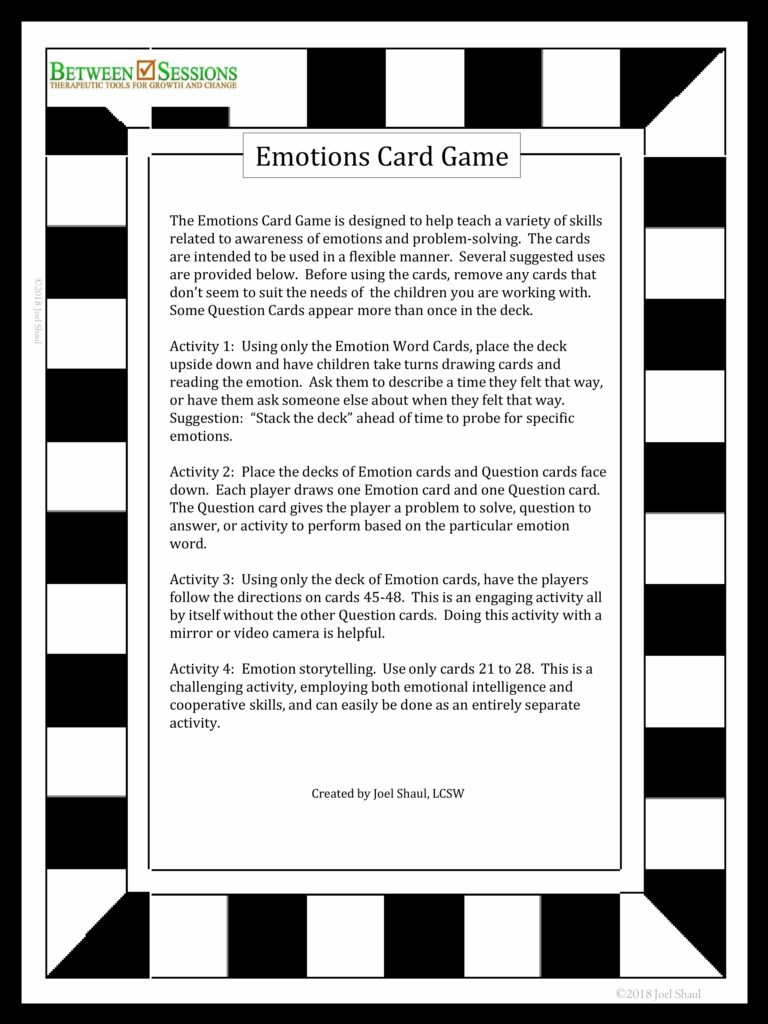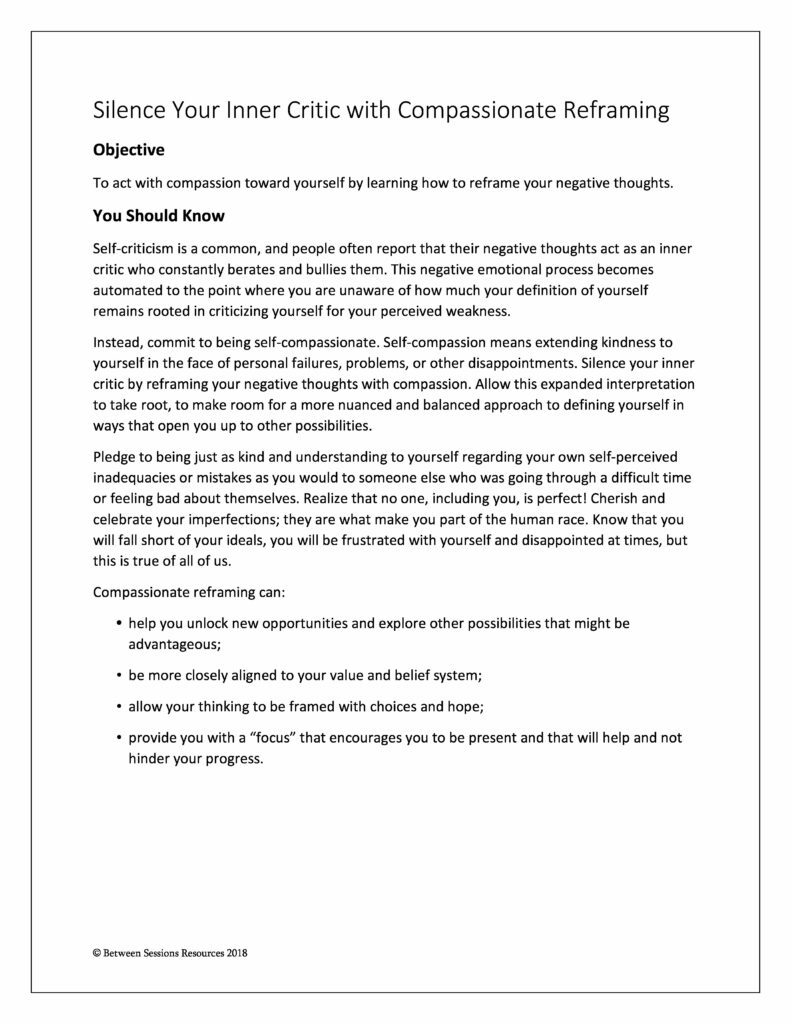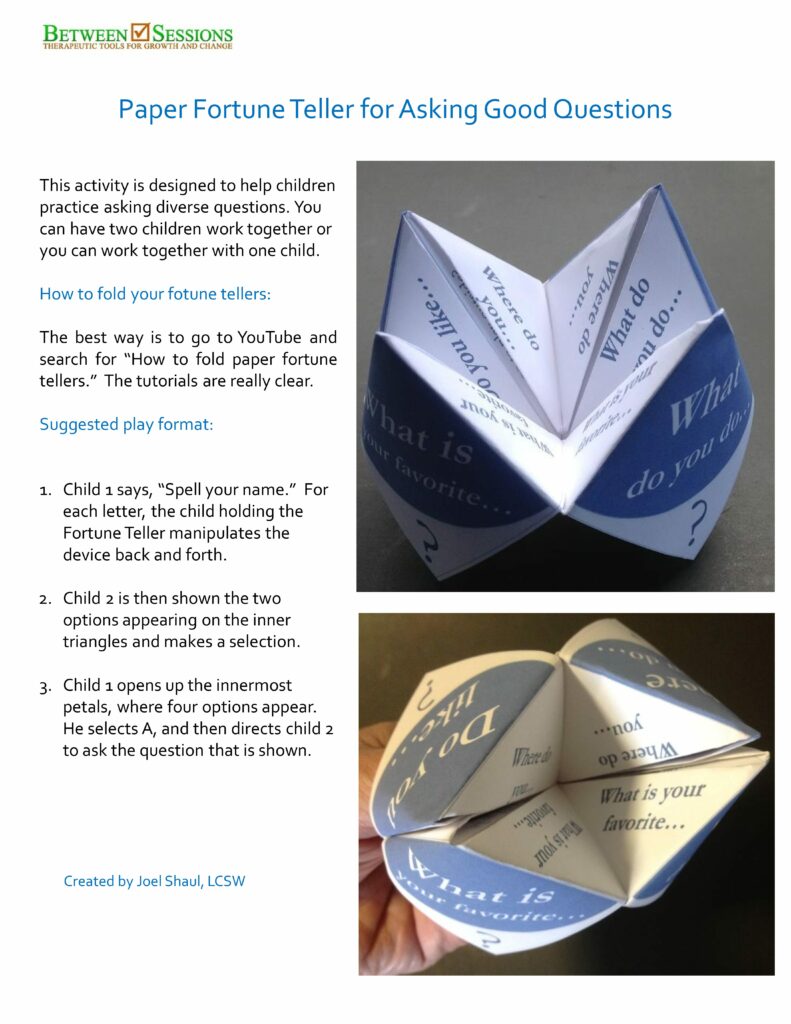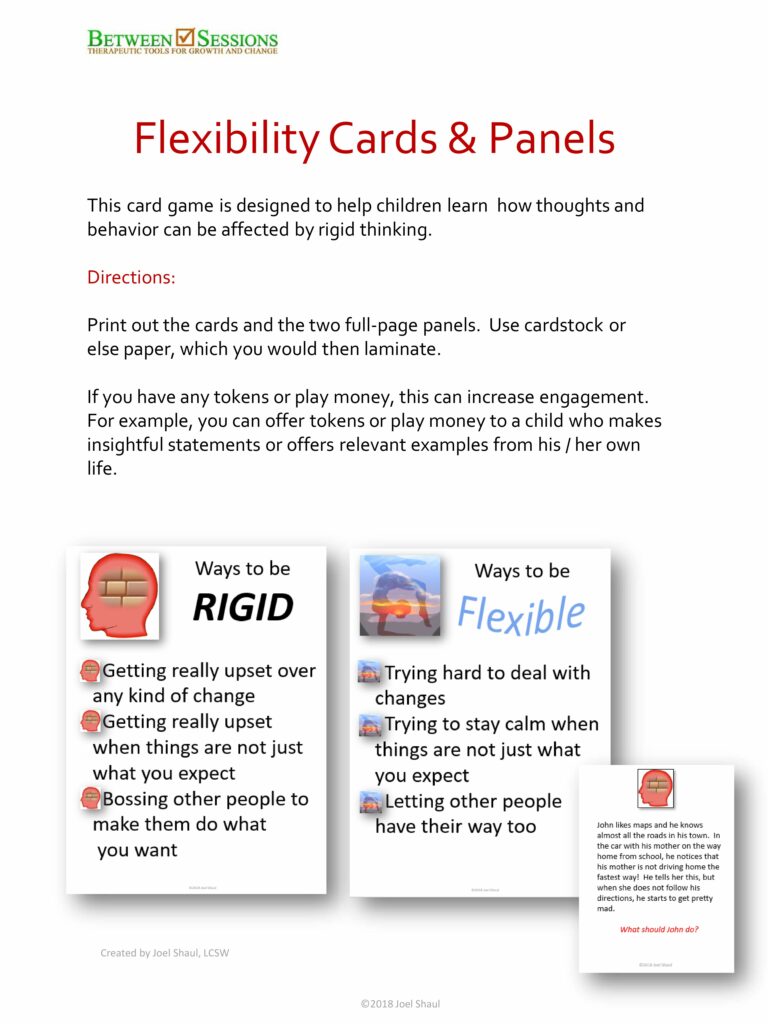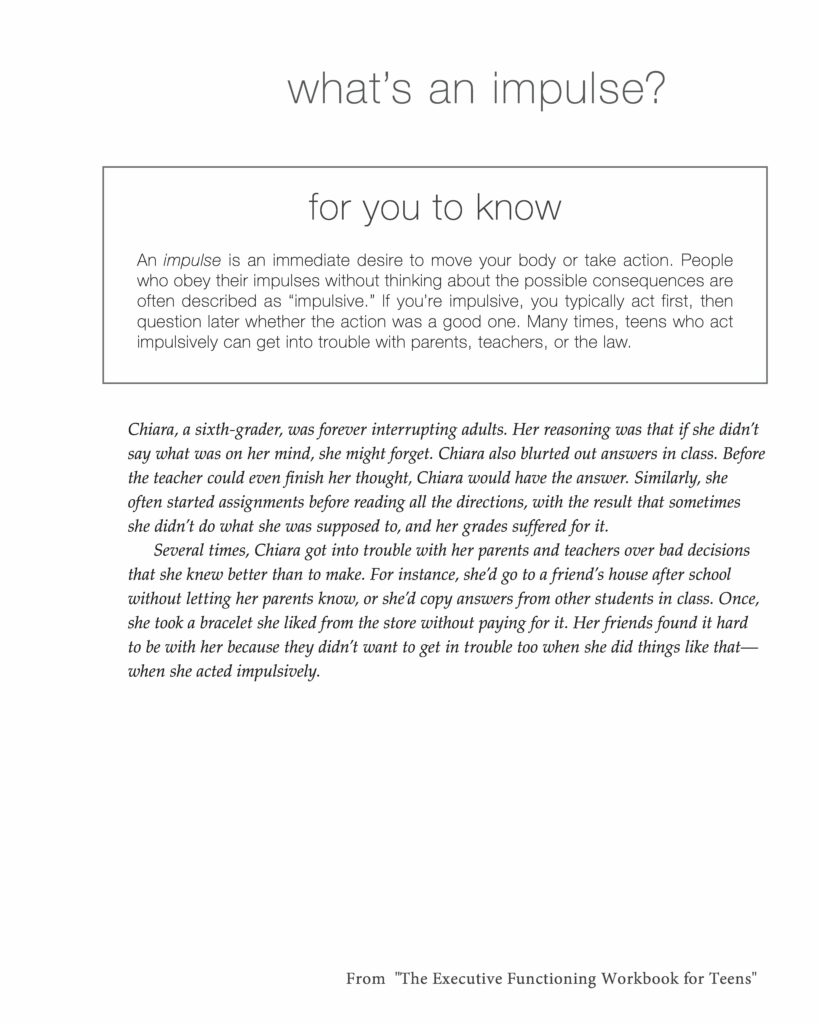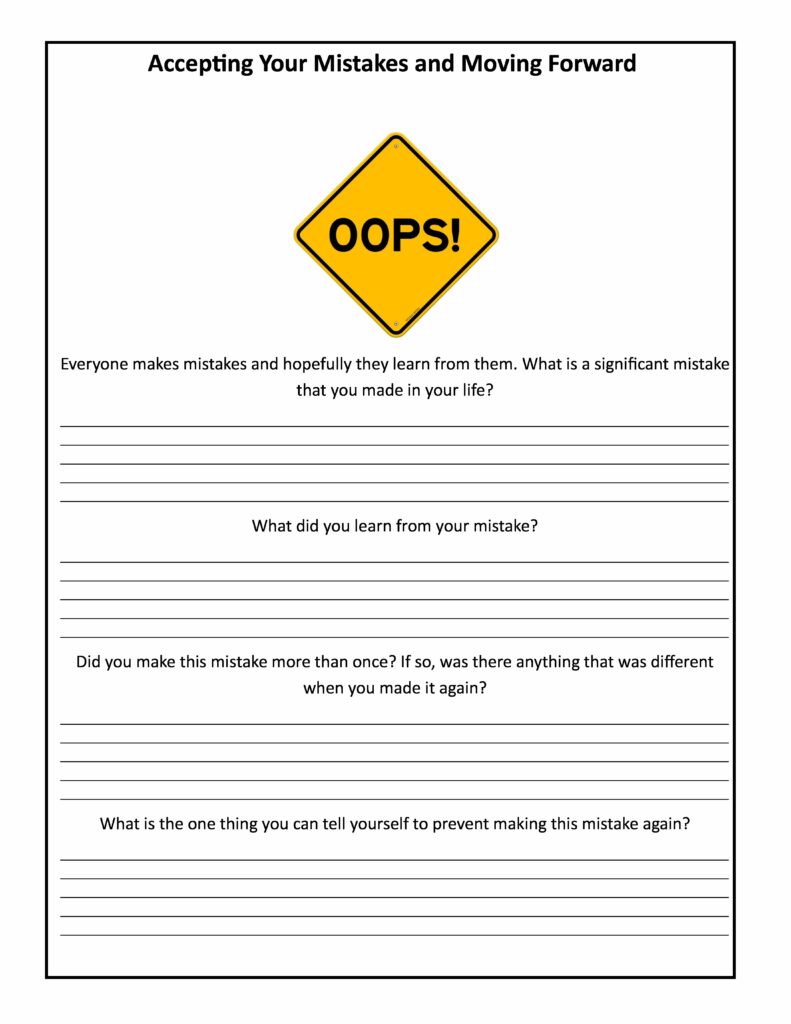The Emotions Card Game is designed to help teach a variety of skills to children and teens related to awareness of emotions and problem-solving. The cards are intended to be used in a flexible manner. The instructions describe four different games than can be played. 27 pages (1118, emotional intelligence)
This worksheet is designed to help people reframe their self-criticism and develop a more compassionate attitude towards themselves. People are asked to think about the critical words they use to describe themselves and to substitute their put-downs with more compassionate thoughts. (self-esteem, self-talk, self-image, 1018)
This worksheet shows people how to cut out and fold a Fortune Teller, which is designed to help kids talk about themselves, their likes and dislikes, and more.
This activity for kids and teens teaches the importance of flexible social thinking. It includes two “poster” handouts to open a discussion on flexible thinking and a simple card game to practice new skills. (Asperger Syndrome, social intelligence, autism, ADHD, 1018)
This recording form helps people keep track of their sleep patterns for two weeks as well as the activities that might have influenced their sleep. Developed by the American Academy of Sleep Medicine. (0818)
This worksheet, from the Executive Functioning Workbook for Teens, is designed to teach adolescents to understand the nature of the impulses and how to control them. (ADHD, self-control, 0418)
Developed by the Center for Disease Control and the American Association of Pediatrics, this driving contract asks teens to agree to a comprehensive list of responsible driving behaviors and asks parents to determine the consequences for teens if they break the important rules of teen driving. (safety, ADHD, 0517)
This form can be used to help people keep track of their medications, including prescriptions, over-the-counter drugs, vitamins and supplements. (medication, depression, health, 0417)
This worksheet asks clients to consider anything that might have helped them in finding solutions to their problems, whether it was something they learned in therapy or something they learned on their own, such as self-help books, advice from a friend, sudden insights, and so on. (0217)
This worksheet is designed to help people understand factors that led to a significant mistake and to identify what they can do differently to avoid repeating this mistake.

